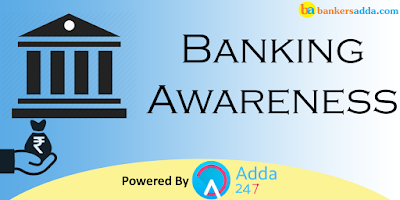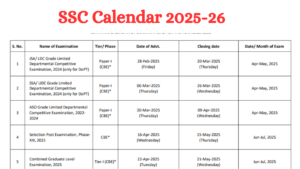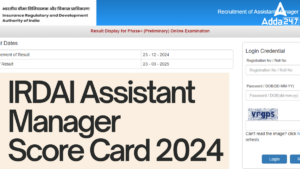Dear Readers,
Q1. In terms of Section ________ of the RBI Act 1934, RBI has the obligation to undertake the receipts and payments of the Central Government and to carry out the exchange, remittance and other banking operations, including the management of the public debt of the Union.

Just a few days are left for NICL AO Exam. It is time to pace up your preparation of Banking Awareness for NICL AO Mains Exam. These Banking questions will also help you in preparing for other upcoming banking recruitment examination.
Q1. In terms of Section ________ of the RBI Act 1934, RBI has the obligation to undertake the receipts and payments of the Central Government and to carry out the exchange, remittance and other banking operations, including the management of the public debt of the Union.
(a) section 16
(b) section 22
(c) section 32
(d) section 20
(e) section 25
Q2. DGBA is responsible for discharging certain core traditional central banking functions, viz., acting as bankers to the Government and banks and managing public debt of both, central and state governments. DGBA stands for-
(a) Department of Government and Bank Accounts
(b) Division of Government and Bank Accounts
(c) District of Government and Bank Accounts
(d) Department of Government and Bank Agency
(e) Department of Government and Bank Association
Q3. In how many divisions DGBA is divided at Central Office?
(a) one
(b) two
(c) three
(d) four
(e) five
Q4. Reserve Bank of India maintains the Principal Accounts of Central as well as State Governments at its Central Accounts Section in-
(a) Mumbai
(b) Nagpur
(c) Pune
(d) Kolkata
(e) New Delhi
Q5. OLTAS is a system introduced in _________ for collection, accounting and reporting of the receipts and payments of Direct Taxes on-line through a network of bank branches.
(a) November 1999
(b) January 2001
(c) April 2004
(d) July 2005
(e) September 2010
Q6. OLTAS stands for-
(a) On-line Transaction Accounting System
(b) On-line Tax Amounting System
(c) On-line Tax Accounting Service
(d) On-line Time Accounting System
(e) On-line Tax Accounting System
Q7. The Asian Clearing Union (ACU) was established in-
(a) 1994
(b) 1984
(c) 1974
(d) 1964
(e) 1954
Q8. Where is the Secretariat office of Asian Clearing Union (ACU)?
(a) Beijing, China
(b) Kathmandu, Nepal
(c) New Delhi, India
(d) Tehran, Iran
(e) Dhaka, Bangladesh
Q9. Which among the following countries are not the members of the Asian Clearing Union (ACU)?
(a) Bangladesh
(b) India
(c) Maldives
(d) China
(e) Sri Lanka
Q10. FVCI which has obtained registration under the Securities and Exchange Board of India (FVCI) Regulations, 2000. FVCI stands for-
(a) Foreign Venue Capital Investors
(b) Foreign Venture Custody Investors
(c) Foreign Venture Capital Investors
(d) Foreign Venture Capital Installment
(e) Foreign Venture Capital Industry
Q11. An FVCI can invest in an Indian company engaged in-
(a) Biotechnology
(b) Dairy industry
(c) Production of biofuels
(d) IT related to hardware and software development
(e) All of the above
Q12. If the shares or convertible debentures are not issued within __________ days from the date of receipt of the inward remittance or date of debit to NRE/FCNR(B)/Escrow account, the amount shall be refunded.
(a) 210 days
(b) 150 days
(c) 180 days
(d) 120 days
(e) 90 days
Q13. FCCB is a type of corporate bond issued by an Indian company in an overseas market in a currency different from that of the issuer. FCCB stands for-
(a) Foreign Currency Convertible Board
(b) Foreign Currency Convertible Banking
(c) Foreign Currency Convertible Bond
(d) Foreign Currency Convertible Base
(e) Foreign Currency Convertible Basel
Q14. What is the meaning of “C” in ECB?
(a) Concourse
(b) Cashless
(c) Common
(d) Conclusion
(e) Commercial
Q15. ECB can be raised under Track-II for the general corporate purpose (including working capital). The minimum average maturity period will be-
(a) 05 years
(b) 10 years
(c) 15 years
(d) 20 years
(e) 25 years
You may also like to Read:




 The Hindu Review October 2022: Download ...
The Hindu Review October 2022: Download ...
 SSC Calendar 2025-26 Out, Check SSC CGL,...
SSC Calendar 2025-26 Out, Check SSC CGL,...
 IRDAI Assistant Manager Score Card 2024 ...
IRDAI Assistant Manager Score Card 2024 ...




